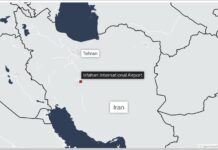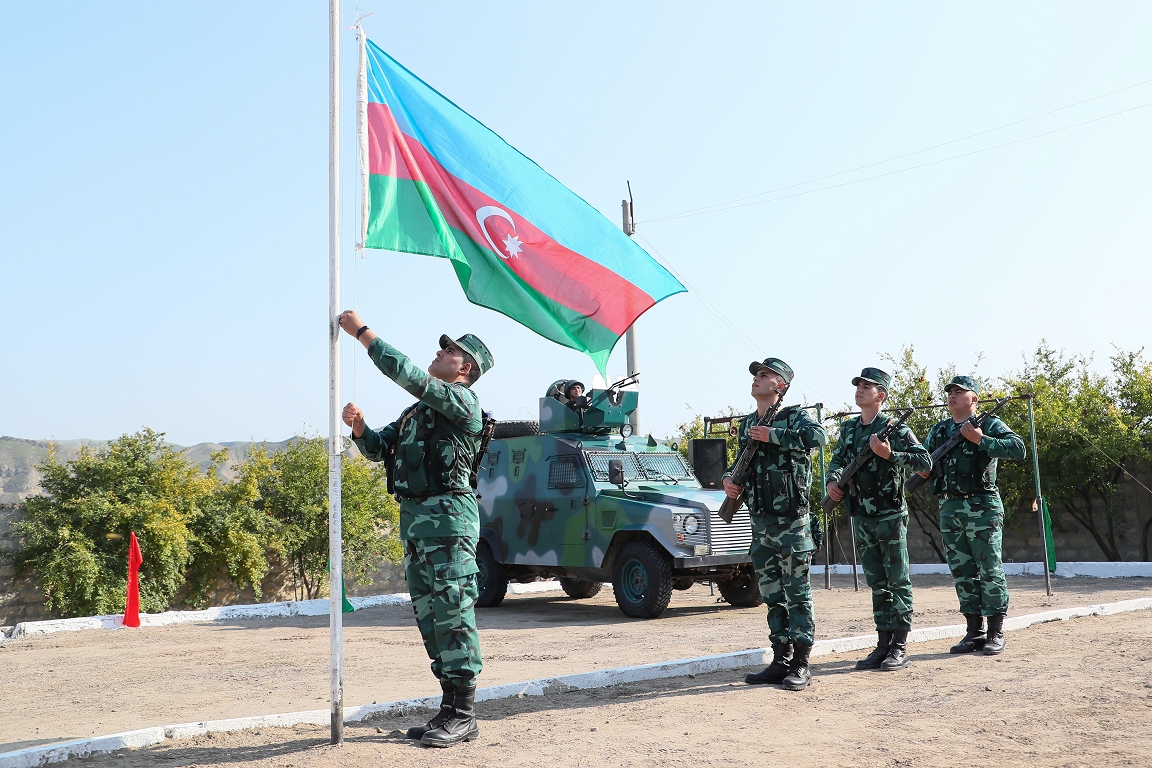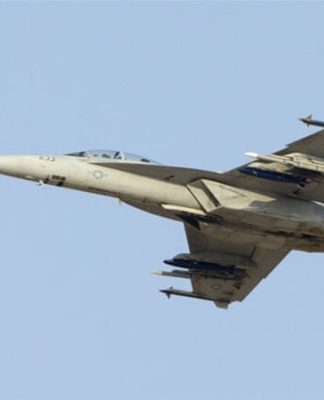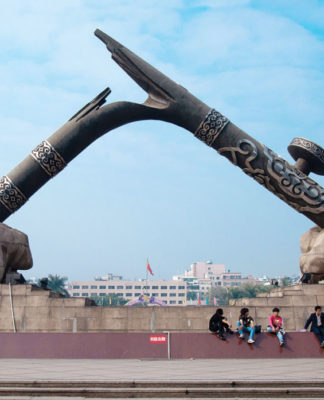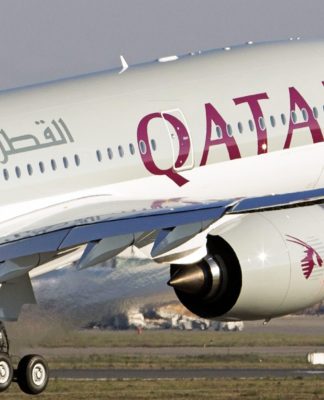After weeks of fierce battles, the guns fell silent on the battle fronts in the Nagorno Karabakh region, which is disputed between Azerbaijan and Armenia, as of 1 am today, according to a tripartite agreement to end the war in it that was reached between the leaders of the two countries and Russia, which ends at least this The cycle of conflict, which throughout its bitter history has claimed thousands of lives and displaced many and threatened to drag a number of countries in the region into the circle of conflict.
The new agreement differs from the previous armistice and ceasefire agreements between the Azerbaijani and Armenian forces, as it stipulated the deployment of Russian peacekeepers in the region, which gives the agreement a kind of regional weight and raises cautious optimism that the peace train began to move towards Karabakh, after Six weeks of fierce battles, and twenty-eight years during which talk of settling this conflict remained on paper.
Russian forces of about two thousand soldiers, equipped with ninety armored personnel carriers and eighty-eight military vehicles, began to deploy in the region in the early hours of this morning, in parallel with the supposed withdrawal of the Armenian forces.
The Russian Defense Ministry said that its soldiers will be linked to observation points along the contact line in Karabakh and the corridor connecting it with the territory of Armenia, and a command center will be established to supervise the ceasefire monitoring near the city of Stepanakert, the capital of the region.
Russian President Vladimir Putin said that he is counting on the agreements reached to create conditions for a long-term settlement of the crisis in Karabakh in a way that serves the interests of the two peoples. Both Armenia and Azerbaijan demanded an exchange of prisoners of war and dead bodies.
As for the President of Azerbaijan, Ilham Aliyev, in a speech to his people, he described the agreement to end the war as historic, and indicated that a joint Russian-Turkish peacekeeping mission would be deployed in the region, and that his country would retain all its gains from its lands, which it managed to regain during the past six weeks, as well as regain it. Three governorates, namely, Kalbjar, by the 15th of November, Agdam, by the twentieth of the same month, and Lachin, by the first of next December, stressing that the mission of Russian peacekeepers in the region will last for five years, which can be extended in If the signatory parties do not object.
In the same context, the Armenian Prime Minister, Nikol Pashinyan, announced that he signed a statement with the leaders of Azerbaijan and Russia regarding the cessation of hostilities in Karabakh, and described the decision to sign that it was very difficult for him, adding that he took this decision as a result of an in-depth analysis of the military situation and based on Evaluate people who know the situation better.
The Prime Minister of Armenia stressed that he signed the agreement, based on the belief that this is the best possible solution to the current situation, indicating that what happened is not a victory and not a defeat, and that there is a need to look to the future and not repeat the mistakes of the past, announcing that he will deliver a speech to his people in the coming days. .
Immediately, crowds gathered in front of the government headquarters in Yerevan to demand the resignation of Pashinyan, and protesters chanted slogans against him, at a time when seventeen Armenian opposition parties demanded, yesterday, Monday /, President Pashinyan to resign from his post, due to the defeats suffered by his country’s forces Region.
These developments came after the Azerbaijani forces controlled large parts of the region, including the strategic city of Shusha, which is fifteen kilometers from the provincial capital, Stepanakert, and is located on the road leading to Khankendi, its largest city.
Armenian military sources had previously mentioned that the fall of Shusha means the fall of the entire region, as its fall represents a turning point in the war, as it is the highest region in it, as it is located at an altitude between 1300 and 1600 meters above sea level, and it resembles a natural castle due to Its rocky sides surround it from three sides, as it is the line of life in the region, and its control gives the forces of Azerbaijan military superiority in addition to the superiority in any possible negotiations regarding the future of the region, and its importance stems from its historical position as the cultural center of Azerbaijan.
The conflict had erupted in that region of the South Caucasus during December 1991, when the Karabakh region, meaning Azerbaijan, the Black Garden Mountains, declared its secession from the Republic of Azerbaijan.
The battles that broke out there in the 1990s left more than 30,000 dead and more than 1.5 million displaced citizens, most of them Azeris. Although the Organization for European Cooperation and Security established what was called a Minsk group to oversee negotiations between Armenia and Azerbaijan, it was unable to make any progress on The diplomatic track, and the conflict remained open to all scenarios.
The region’s crisis of 4,800 square kilometers is one of the biggest pending problems in the Caucasus region, and it has remained firmly on the agenda of international discussions for nearly 30 years, without any progress despite the issuance of four Security Council resolutions calling for the withdrawal of Armenian forces from it. .





